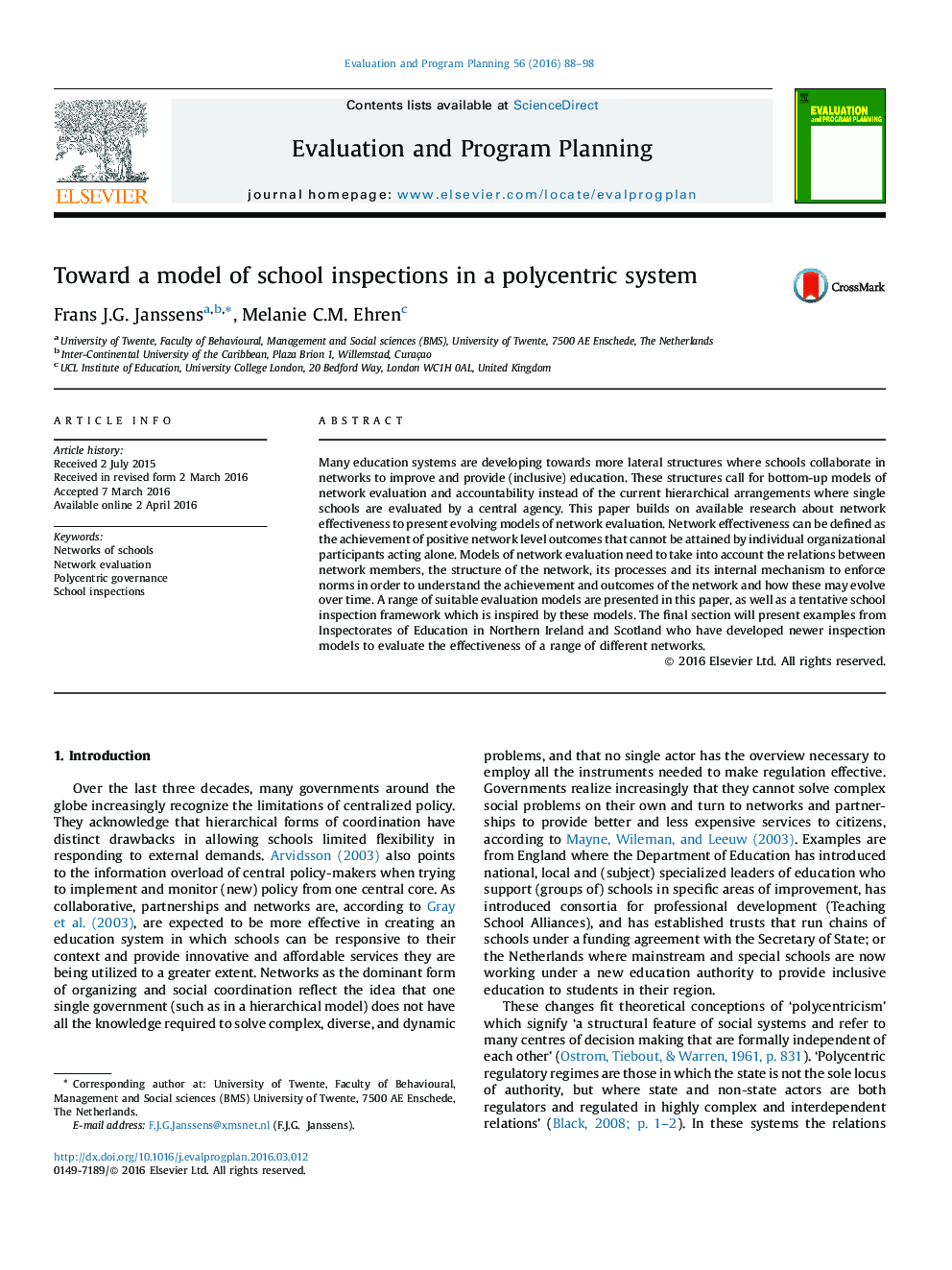| Article ID | Journal | Published Year | Pages | File Type |
|---|---|---|---|---|
| 6792779 | Evaluation and Program Planning | 2016 | 11 Pages |
Abstract
Many education systems are developing towards more lateral structures where schools collaborate in networks to improve and provide (inclusive) education. These structures call for bottom-up models of network evaluation and accountability instead of the current hierarchical arrangements where single schools are evaluated by a central agency. This paper builds on available research about network effectiveness to present evolving models of network evaluation. Network effectiveness can be defined as the achievement of positive network level outcomes that cannot be attained by individual organizational participants acting alone. Models of network evaluation need to take into account the relations between network members, the structure of the network, its processes and its internal mechanism to enforce norms in order to understand the achievement and outcomes of the network and how these may evolve over time. A range of suitable evaluation models are presented in this paper, as well as a tentative school inspection framework which is inspired by these models. The final section will present examples from Inspectorates of Education in Northern Ireland and Scotland who have developed newer inspection models to evaluate the effectiveness of a range of different networks.
Related Topics
Health Sciences
Medicine and Dentistry
Public Health and Health Policy
Authors
Frans J.G. Janssens, Melanie C.M. Ehren,
